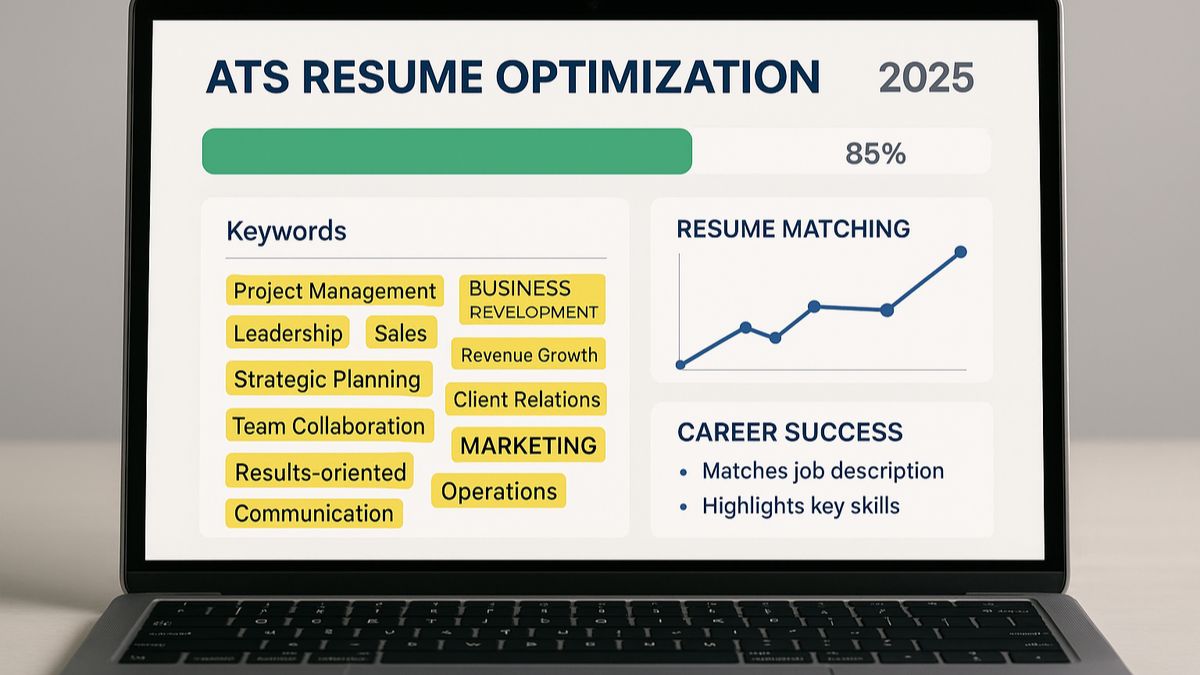Applicant Tracking Systems (ATS) have revolutionised modern recruitment, filtering resumes before they ever reach human recruiters. For job seekers in 2025, creating an ATS Resume is no longer optional; it’s essential. A poorly optimised resume can vanish into a digital void, while a strategically crafted one can secure interviews at leading companies. This guide will walk you through everything you need to know about optimising your resume for ATS success.
Why ATS Resume Optimization Matters in 2025
Recruiters and employers in the UAE, the Middle East, and globally now receive thousands of applications for a single position. To streamline hiring, they rely on Applicant Tracking Systems to automatically:
-
Parse and categorize resumes
-
Match resumes to job descriptions
-
Eliminate unqualified or poorly formatted submissions
If your resume isn’t ATS-friendly, you risk disqualification before a recruiter even sees your name. By understanding ATS requirements and integrating best practices, you significantly increase your chances of moving forward in the hiring process.
Understanding How ATS Resume Systems Work
-
Keyword Matching
ATS software scans resumes for specific skills, job titles, and industry-related keywords. Without the right match, your application won’t pass the first filter. -
Formatting Rules
Complex designs, graphics, or tables often confuse ATS scanners. A clean, text-based layout ensures smooth parsing. -
Relevance Scoring
ATS assigns scores based on how closely your resume aligns with the job description. Higher scores mean higher chances of being shortlisted.
Best Practices for Crafting an ATS Resume in 2025
1. Use Standard Headings
Stick to simple headings like ‘Experience’, ‘Education’, ‘Skills’, and ‘Certifications’. ATS may skip content under creative or unusual section titles.
2. Tailor Keywords Strategically
Incorporate exact keywords from the job description. For example, if a role specifies “project management software”, use the exact phrase instead of “managing projects”.
3. Choose the Right File Format
Most ATS systems process .docx and .pdf. However, when in doubt, .docx is safest.
4. Avoid Graphics and Tables
Text inside images, logos, or charts won’t be read by ATS. Stick to bullet points, consistent fonts, and standard formatting.
5. Highlight Measurable Achievements
Instead of writing “responsible for sales”, use “Increased sales revenue by 25% in Q2 2024.” Numbers boost relevance and credibility.
Tools to Test Your ATS Resume
Before sending your resume, test it against reliable tools to ensure it’s ATS-compliant. Popular options include:
-
TopResume
These platforms compare your resume with job postings and provide optimisation suggestions.
Common Mistakes to Avoid in ATS Resume Submissions
-
Using images, fancy fonts, or colored backgrounds
-
Stuffing keywords unnaturally
-
Omitting soft skills that match the job description
-
Uploading in unsupported file formats
By avoiding these errors, your ATS Resume remains recruiter-ready.
Future of ATS Resume Optimization
In 2025, ATS technology is becoming more sophisticated with AI-driven scanning. Future systems may detect context, evaluate skill relevance, and even analyse tone. This means job seekers must focus on authenticity while maintaining ATS compliance. A balance between human readability and system compatibility is the new gold standard. Free ats resume templates.
Final Thoughts
Your ATS Resume is your digital first impression. By mastering optimisation techniques, you can ensure your application passes the filters, lands in front of recruiters, and secures interviews. Whether you’re applying for jobs in the UAE, global markets, or remote positions, tailoring your resume for ATS is one of the smartest career strategies for 2025.



